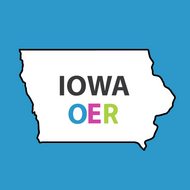Macroevolution @ ISU - BIOL 465X/EEOB 565X
(View Complete Item Description)Open courseware for Macroevolution, focusing on research methods and software packages, such as R. Course description Evolutionary thinking provides the underpinnings of modern biology. In recent decades, the field of macroevolution (evolution above the species level) has matured into a rich discipline with a well-developed mathematical theory for testing hypotheses of species diversification, for understanding trait evolution, and evaluating patterns of covariation across the tree of life. This course will provide a synthetic view of biology and how life on earth has changed over time. Course Outcomes Upon completion of the course, students will: Understand patterns of diversity in the fossil record, and changes in that diversity over time Understand macroevolutionary patterns and processes, and the difference between gradualism, stasis, and punctuated equilibrium Become familiar with ‘tree thinking’, and understand the principles of using a phylogenetic perspective to address evolutionary questions in biology Gain experience in applying cutting-edge phylogenetic methods for testing hypotheses in macroevolution
Material Type: Activity/Lab, Full Course, Lecture Notes, Module, Syllabus




















